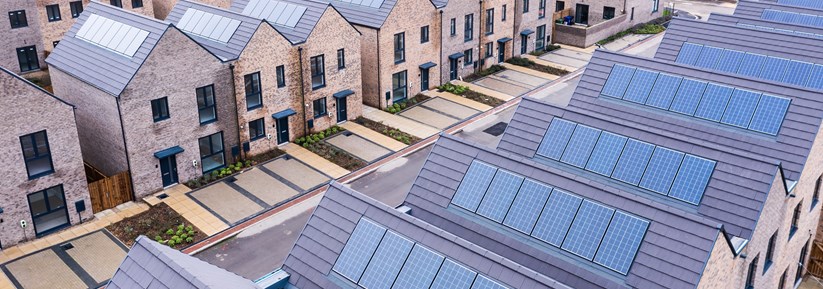Minimum Energy Efficiency Standard: What property owners need to know

A simple guide to the Minimum Energy Efficiency Standard: What property owners need to know
If you're looking to buy a property, it’s important to understand the Minimum Energy Efficiency Standard – especially if you plan to rent it out. This straightforward guide will help you navigate MEES and its implications.
What is the Minimum Energy Efficiency Standard?
The Minimum Energy Efficiency Standard, commonly referred to as ‘MEES’, came into force on 1 April 2018 in England and Wales. It aims to improve the energy efficiency of rented properties, help tenants save on energy bills and reduce carbon emissions.
How does the Minimum Energy Efficiency Standard work?
MEES requires that all rented properties have an energy performance certificate (EPC) rating of E or above. An EPC measures how energy-efficient a property is, with recommendations on how to improve it.
Properties with ratings of F or G cannot be rented out until they are upgraded to meet the minimum E rating. By 2028, all leased properties will need a minimum C rating.
What does Minimum Energy Efficiency Standard mean for domestic property?
The domestic minimum energy efficiency standard applies to all:
- assured shorthold tenancies (ASTs)
- regulated tenancies
- domestic agricultural tenancies.
Since 1 April 2020, landlords have been unable to start a new tenancy for properties covered by MEES regulations with an F or G rating, or to renew an existing tenancy until the property’s energy efficiency is improved to E.
Landlords can consult the government guidance on the domestic private rented property minimum standard to learn more about the minimum level of energy efficiency required to let such property.
How can domestic landlords improve efficiency?
If a property being let doesn’t meet MEES, the landlord must make improvements to reach at least an E rating immediately or apply for an exemption.
They can use any available third-party funding to pay for improvements, and up to £3,500 themselves.
If improvement costs exceed £3,500 and no third-party funding is available, landlords can apply for a ‘high cost’ exemption on the PRS Exemptions register, provided they submit quotes with evidence from three different installers showing that the costs of improving a property’s energy efficiency will exceed the spending cap.
The cap doesn’t apply where third-party funding can cover the costs of improvements.
How does Minimum Energy Efficiency Standard apply to the private rented sector (non domestic property)?
MEES also applies to any non-domestic properties, including commercial properties. Since 1 April 2023, landlords must ensure that all existing tenancies for non-domestic properties comply with an EPC rating of E or above.
Landlords and enforcement authorities should consult the government guidance for the non-domestic private rented property minimum standard to learn more about the minimum level of energy efficiency required to let such property.
How are commercial property improvements paid for?
The lease agreement for an individual property usually determines whether landlord or tenant pays for the energy efficiency improvements. This agreement is the first point of reference, because it also determines whether costs are viewed as being for repairs or improvements.
Unlike domestic property, there are no third-party funding options for non-domestic properties, so any improvements will have to be funded by the landlord or tenant.
When granting a new lease, landlords can incorporate drafting in the section on service charges expressly allowing energy efficiency improvements in the future. Recommended improvements need only be made on non-domestic properties if these can achieve an energy efficiency payback of seven years or sooner.
How should commercial landlords apply for/register exemptions?
Non-domestic landlords can apply for exemptions under certain circumstances, and these must be recorded on the national private rented sector (PRS) exemptions register. They might include cases where improvements exceed the spending cap or specific recommended measures aren’t feasible.
MEES doesn’t affect existing tenant and landlord obligations such as rent reviews, terminal dilapidations or lease renewal.
Consult an RICS member for MEES guidance
MEES is crucial for anyone looking to rent out a property. Ensuring your property meets the standard can make it more attractive to tenants and help reduce overall energy costs.
Always check the EPC rating before buying and be prepared to make necessary improvements to comply with MEES regulations. An RICS insight paper also explains the potential impacts of MEES regulations on UK property management and valuations.
Looking to buy a property to rent? Get in touch with an RICS professional for practical, up-to-date guidance on MEES